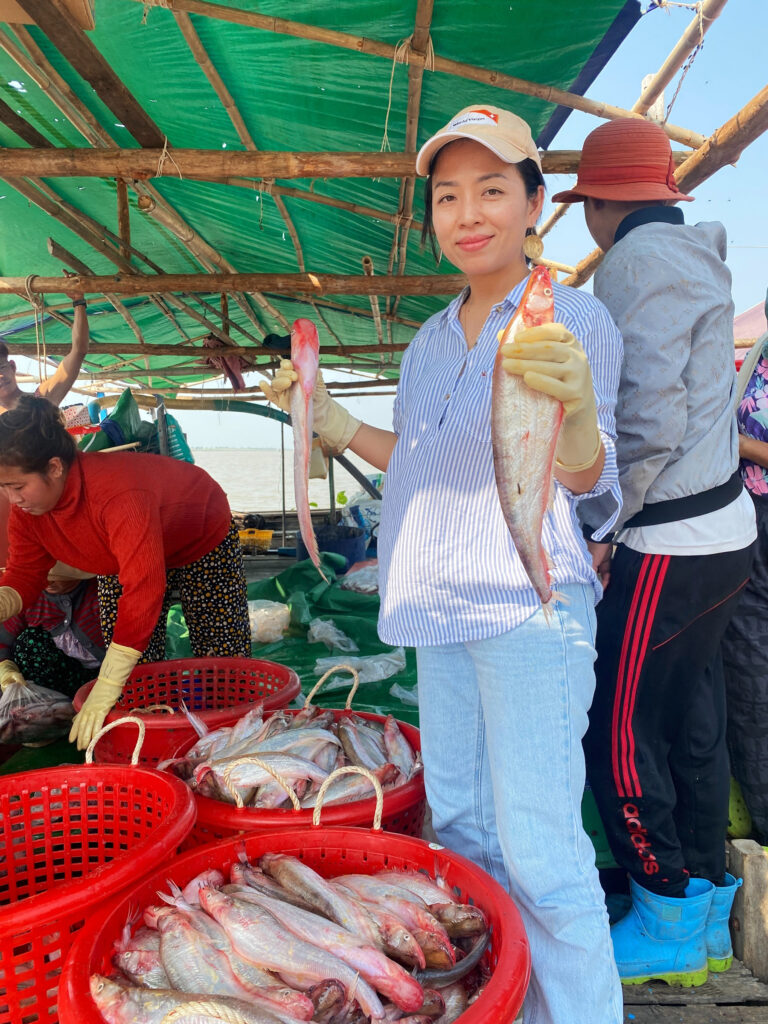As owner of Siem Reap’s Home Taste Food, Sim Sreyroath credits the Cambodia Quality Seal with the growth and success of her dried fish business

Realising her ambitions for the international market, Sreyroath is excited for the impacts of the CQS on the health and safety of Cambodian food products – as well as their viability beyond the Kingdom’s borders. She encourages others to explore the certification.
What was the CQS training and certification process like?
The CQS teams were so caring and they were very helpful. After applying and approval, a team from the Fisheries Administration came to my business and began auditing to see if we qualified for the CQS standards. They checked food storage, food quality and sanitation and to see that chemicals and supplies were safely stored.
I could not fulfil all of the requirements on the first application but they told me what I needed to do – what to change, what to fix – and in the next four weeks they would return to check if everything was improved. They also interviewed the workers, to make sure that we were being honest about our operations and processes.
For me, I really appreciated the training and support I received from the CQS team. It was really important for me to receive CQS certification because it is the foundation bridging the gap for our business to receive the HACCP in the future. Without this type of training, I don’t know if we would be able to receive the HACCP certification, which is the internationally recognised certification.
Beyond setting Home Taste Foods on the path towards accessing international markets, how has the CQS process and certification impacted your business?
There are three main benefits that my team and I have received from the CQS process. First, we now have more confidence in ourselves and in our product. Second, consumers know our products are safe and our sales have increased. When they see the label, they compare it with other products and choose the product with the CQS logo. They trust it.
Finally, with the support from the CQS teams on workflow and management, we now know how to operate our business better. Before, it was just a small family business and we struggled to produce 10 kilos of product each day. But since we received training and our operation has grown, we can produce around 200, 300 or even 500 kilos per day.
Is the CQS programme a worthwhile pursuit for other businesses?
I am happy that Cambodian food producers now have a path to food safety certification and the potential to access international markets. Many Cambodians trust the quality of products imported from other countries over those produced here. Once more Cambodian producers have CQS certification, it can improve the image and brand of their product. And shoppers can compare between products with and without CQS status and choose what they want. It benefits businesses and consumers. For the international market, I would say that CQS is the starting point for people outside Cambodia to recognise Cambodian products.



